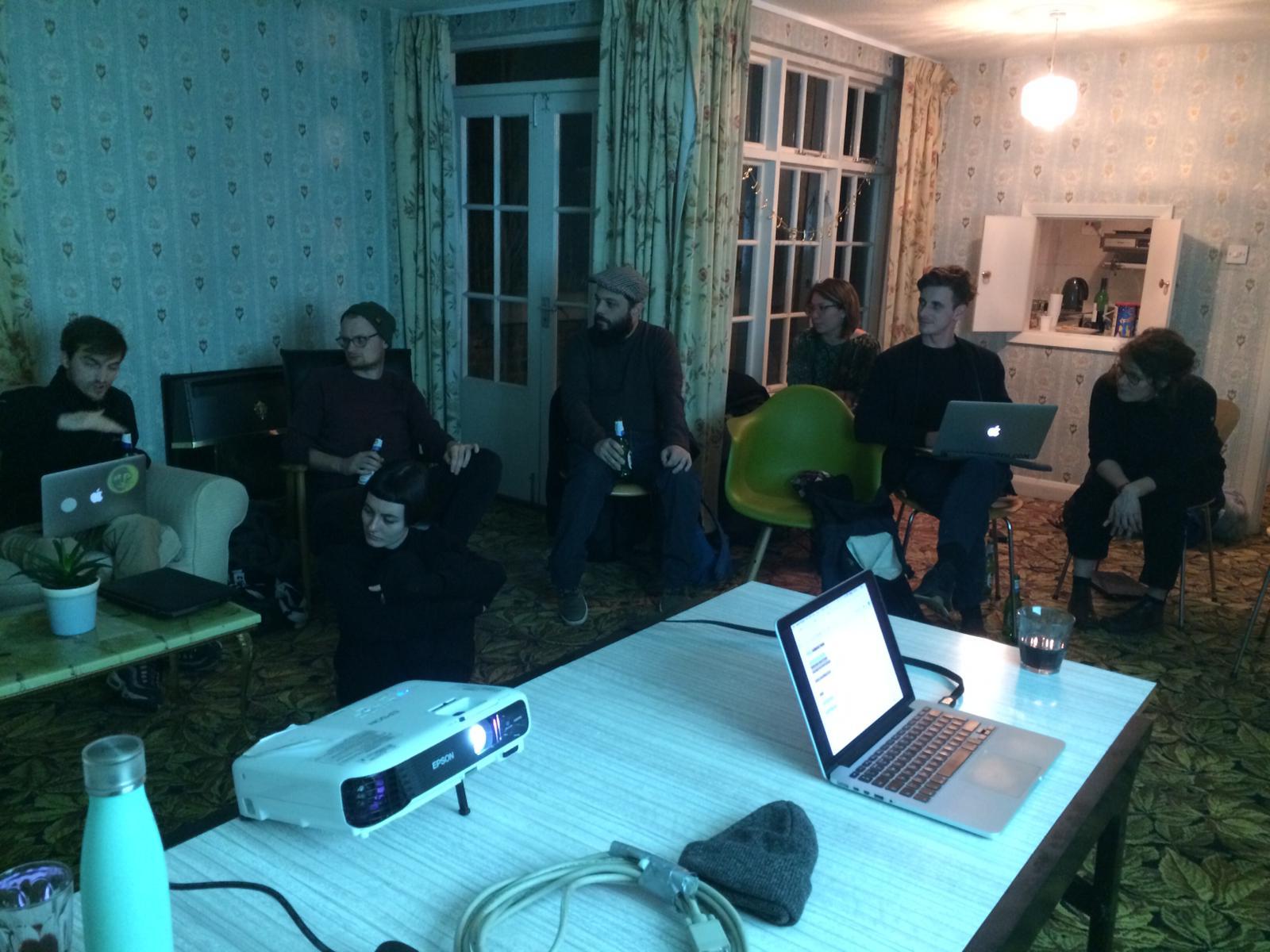Meetup#3 Samiz Dat and Pinning RPIS

At our last meetup of the year we wanted to share some of the prototypes we have been making to further develop p2p infrastructure through the use of local nodes, representatives and pinning apis. Alejandro has been working on a pinning service application that enables anyone to ‘pin’ or ‘seed’ a dat website onto a remote server. It is currently in very basic beta but gave us an idea about ways in which we can ensure that we maintain websites and digital content on p2p web. The current UX shows a list of DAT archives that are pinned to that specific remote server (currently a raspberry pi at the studio). Alejandro will be publishing a full blog post tutorial about his methods and how he integrated CORS (cross origin resource) into the Homebase API.

We were alos joined by Rosemary from May Day rooms who is working on an active archive project exploring methods of maintaining and distributing various articles of leftist or marginalised media since 1968. We discussed a number of existing platforms for distributing copyrighted material and open access journals before getting started with Samiz Dat and Hyper readings. Samiz Dat (formely Dat Library) is named after the practice of passing secret information between ‘dissidents’ under communist or totalitarian governments during the soviet Era.
“Samizdat: I write it myself, edit it myself, censor it myself, publish it myself, distribute it myself, and spend jail time for it myself. ### Vladimir Bukovsky
Samiz-Dat uses Dat protocol to share and distribute libraries over p2p web. Libraries are seeded by other peers and files from each dat archive can be downloaded individually or in their entirety. The Samiz-dat desktop app currently looks and feels a lot like a torrent client application with each library showing a seed count and upload/ download metrics. You can also copy the dat URL straight into beaker browser and access the archive directly but then you would miss out on all the nice features samiz-dat has – including a really nice integration with Calibre file structure and metadata.
If you want to give it a go first visit samiz dat and download the client application for your machine. 2) if you want a library to download and seed we made a digital media research library samiz dat key Agorama library
14d1624869b1bef23fc9c55ed9340e0aadba4938d97c59d176189af79502773a
If you click ‘add new library’ and enter this key you should be able to start browsing and seeing digital books over the p2p web.
notes taken during this session are on the etherpad
